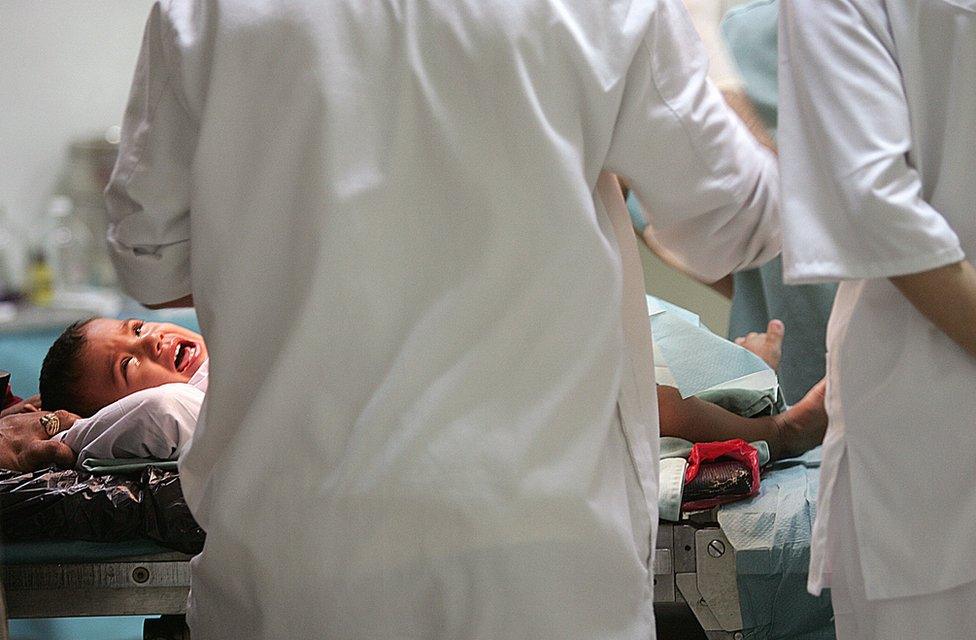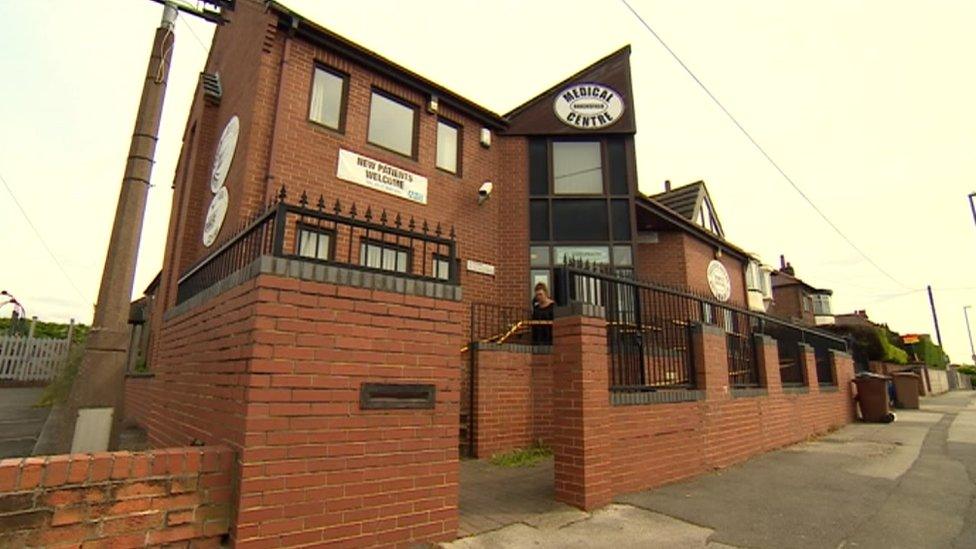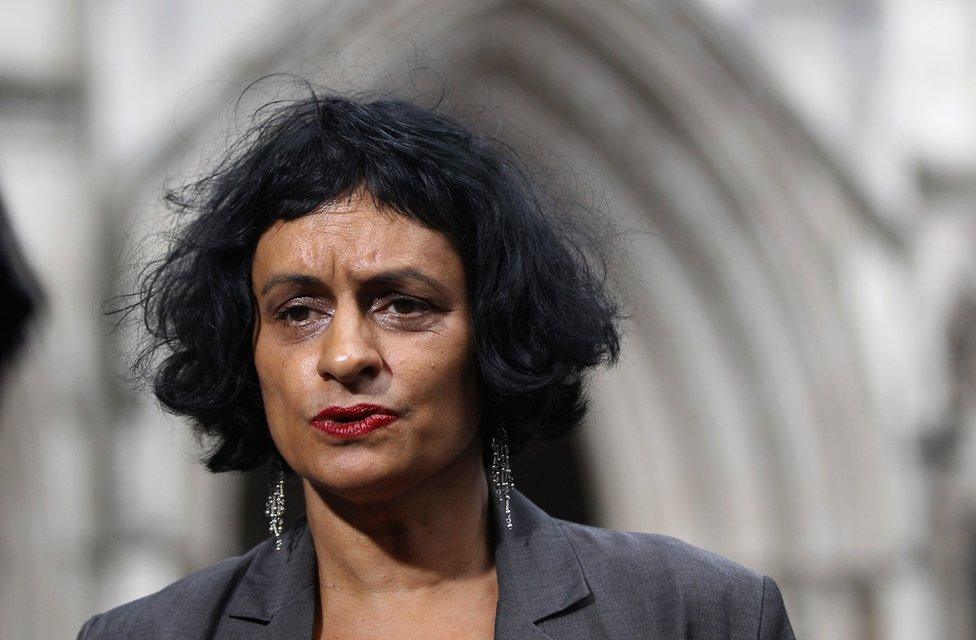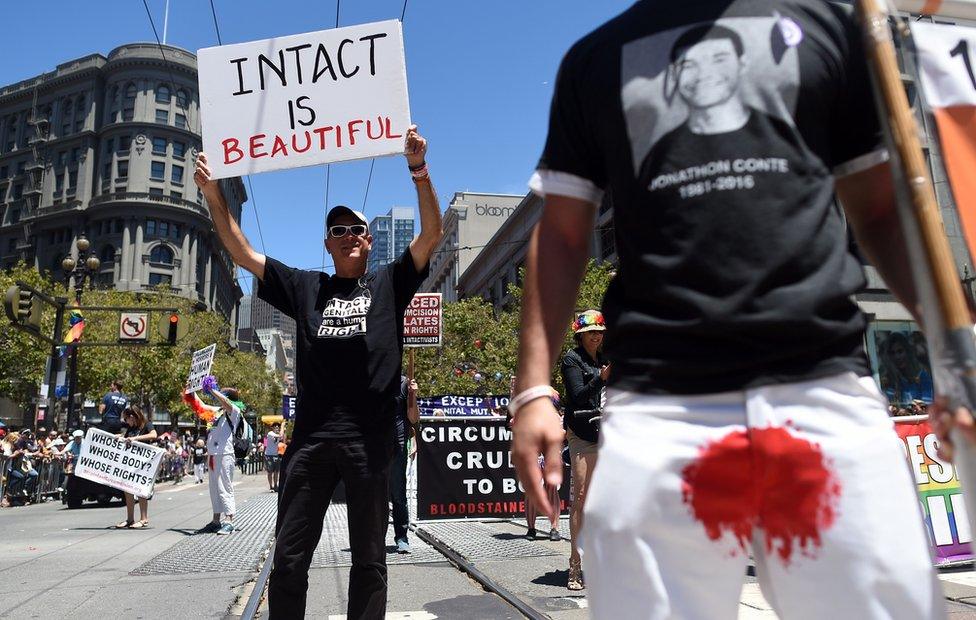Doctor 'acted illegally' by circumcising boy
- Published

The boy (not pictured here), was staying with his grandparents when the procedure was performed
A doctor accused of circumcising a boy without his mother's consent should be prosecuted, a leading human rights lawyer has said.
The three-month-old boy was circumcised for religious reasons while staying with his paternal grandparents in 2013.
A police investigation was dropped but Saimo Chahal QC wants Nottinghamshire Police to take action against Dr Balvinder Mehat.
The doctor told the BBC it would not be appropriate for him to comment.
He has not clarified whether or not he had been told that the mother had consented to the procedure.

The boy was circumcised at Bakersfield Medical Centre in Nottingham
Nottinghamshire Police said in a statement: "Where a victim or member of the public feel a decision made by us to discontinue an investigation should be reviewed, we will always welcome an appeal.
"We are absolutely dedicated to getting the best for our victims and will always work with them and support them."

Human rights lawyer Saimo Chahal QC wants the doctor to be prosecuted
The boy's mother believes circumcision amounts to MGM, or "male genital mutilation", and is "inhumane".
"I am deeply hurt by what has happened to my son and the suffering I have been forced to witness," she said.
"No amount of money in the world could make right what's been done, and my only hope is to raise awareness of MGM and reveal the true suffering this procedure really inflicts on tiny babies.
"My life will never be the same again and I dread my son growing up and learning what happened to him."
Ms Chahal's previous clients include Michael Sandford, who attempted to grab a gun to shoot Donald Trump, and Tony Nicklinson, a man with locked-in syndrome who fought for the right to legally end his life.
She has written to police stating that they have misapplied the law and must review the decision not to prosecute.

The law and ethics of male circumcision: BMA guidelines
Both parents should normally give consent for "non-therapeutic" or "ritual" circumcision, i.e. when the procedure is not carried out for medical reasons
When parents disagree about whether a child should be circumcised, doctors should not circumcise without the leave of a court
Doctors must make accurate, contemporaneous notes of discussions, consent, the procedure and its aftercare
The medical harms or benefits of circumcision have not been unequivocally proven but there are clear risks of harm if the procedure is done inexpertly
All children who are capable of expressing a view should be involved in decisions about whether they should be circumcised, and their wishes taken into account

The boy was circumcised at Bakersfield Medical Centre in Nottingham on 31 July 2013.
His mother originally contacted social services, then contacted police on 24 November 2014.
There was a police investigation but the force deemed it not to be a criminal matter, and the matter was referred to the General Medical Council.
The General Medical Council said it would not be able to confirm whether or not Dr Mehat is under investigation, and would not be able to add to the information given by police.
Dr Mehat said in a statement: "It would be inappropriate to comment whilst any investigation is ongoing."

"Intactivists" argue that circumcision causes pain and reduces sexual pleasure for men and their partners
The mother is being assisted by Tim Alford from the anti-circumcision group Men Do Complain, who said the boy has already experienced discomfort because of being circumcised.
"He has had a couple of visits to the doctors, one to the NHS emergency centre, with inflammation around the wound," he said.
"Since the hot weather he has had another flare-up, probably due to abrasion against his undergarments.
"The glans, which normally in a four-year-old would be fully protected by the prepuce at all times, looks very red and sore, and the remnants of the prepuce is inflamed, and weirdly stacked-up behind the glans.
"At the moment [his mother] is applying a prescription moisturising lotion, and ensuring he has soft underwear. It's all quite distressing really. Poor lad."